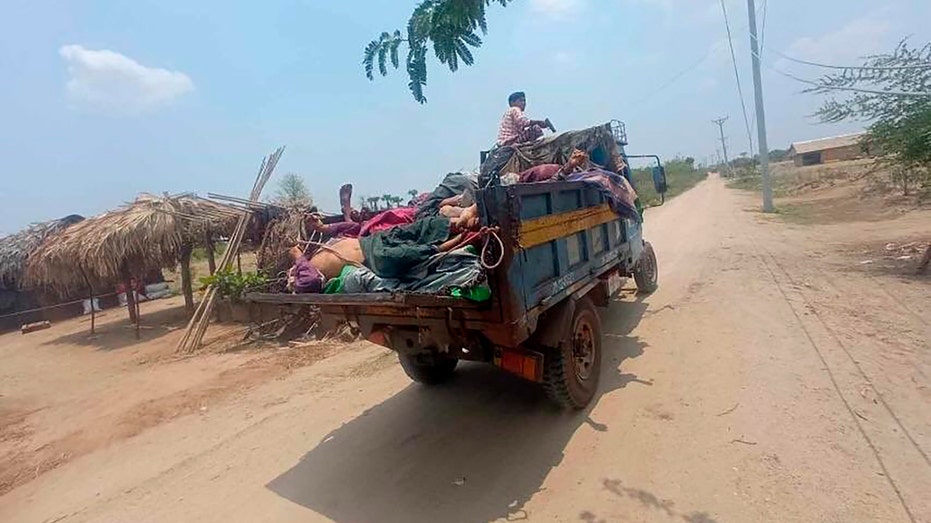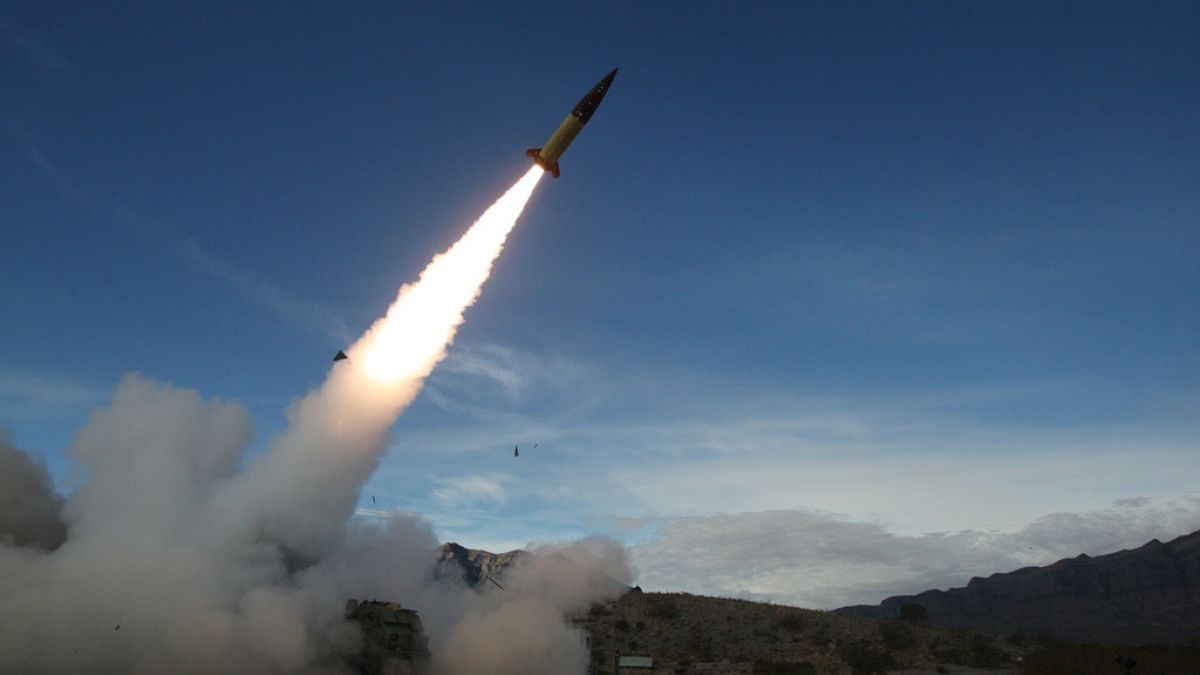Reports of army killing of villagers in Burma supported by photos and harrowing tale of a survivor
Soldiers of Burma’s military government have reportedly carried out a massacre of over 30 civilians in central Burma; the country has been mired in violence since the military seized power in 2021.

Reports that soldiers of Burma’s military government last week carried out a massacre of more than 30 civilians in a village in central Burma were supported Monday in interviews with a local administrator and a man who says he survived the killings.
The bloodshed on Saturday morning in Let Htoke Taw village in Sagaing region’s Myinmu township, reported by independent media, was the latest of three mass killings in the past few days in Burma’s brutal civil war.
REBEL GROUP CLAIMS IT CAPTURED BURMESE COMMAND POST, IMPRISONED HUNDREDS OF GOVERNMENT SOLDIERS
The Associated Press couldn’t independently verify details of what happened, and the military government didn’t immediately respond to an emailed request for comment. It has denied past accusations of attacks on civilians and in some cases placed the blame on resistance forces.
Burma has been mired in violence since the military’s February 2021 seizure of power from the elected government of Aung San Suu Kyi prompted nationwide peaceful protests that security forces suppressed with deadly force. The violent repression triggered widespread armed resistance, which has since reached the intensity of a civil war.
The other two recent mass killings involved at least 15 people from a resistance group, along with civilians, who were killed in an airstrike while holding a meeting at a monastery in central Magway region on Thursday, and 32 people killed that same day in disputed circumstances in fighting in Mandalay region, also in the central part of the country.
Thirty-three people, including three 17-year-old boys, two older people and three carpenters from a nearby village, were killed Saturday in an army raid on Let Htoke Taw, said a local administrator loyal to the opposition National Unity Government who managed to escape from the village.
The National Unity Government, the country’s main opposition group, operates as a shadow government and stakes a claim to greater legitimacy than the ruling military.
The administrator, who spoke to the AP on condition of anonymity because he feared for his personal safety, said that at least 11 other villagers were wounded when 100-200 soldiers and armed men believed to be members of an army-affiliated militia entered the village in an apparent search for resistance fighters of the Peoples Defense Force, the loosely organized armed wing of the National Unity Government.
A Let Htoke Taw villager told the AP on Monday that panicked residents sought to flee when the soldiers, firing their weapons, attacked shortly after 5 a.m., and those who couldn't escape the village sought safety in the main building of the local Buddhist monastery.
The 32-year-old villager, also insisting on anonymity for safety’s sake, said that he, his wife and two children and other family members ended up at the monastery, but were held captive in the main building there by the soldiers along with about 100 other villagers.
He said that he and more than 30 other men were brought outside by the soldiers and forced to sit in rows on the ground while they were interrogated with questions about who the local resistance leaders were and where they could be found.
Despite beatings, the men in the front row denied knowing such information, and then the soldiers began shooting them, initially one by one, and then en masse, the villager said.
The villager said that he slumped onto the ground after a man sitting beside him who was shot multiple times fell on top of him. He said he could hear the firing continue from several weapons, and a captain ordering his men to shoot their victims until they were dead. There were 24 dead at the scene, and nine people killed elsewhere in the village, he said. Photos provided to the AP show about that number of corpses, several with wounds visible, laid out in two-and-a-half rows.
The survivor, who was wounded in the left armpit, said that he played dead for a half-hour until the soldiers left the monastery compound around 7 a.m., after burning the bodies of five dead men and taking hostage 17 villagers including his wife and children. The hostages were released outside the village, he said.
Both he and the administrator said that soldiers burned down between 170 and 200 homes in the village, a tactic it has been accused of repeatedly employing. They also said the soldiers destroyed the village's water pumps.
Sagaing has been a stronghold of armed resistance to the army, which has responded with major offensives using ground troops supported by artillery and airstrikes, burning down villages and driving hundreds of thousands of people from their homes.
Let Htoke Taw village, which is located about 70 kilometers (45 miles) west of Mandalay, the country’s second-largest city, has been previously targeted by soldiers fighting the resistance, and about 545 houses there were set on fire in May last year.
What's Your Reaction?
















